Taking on New Challenges: Rafael Taiar ’22 B.Arch
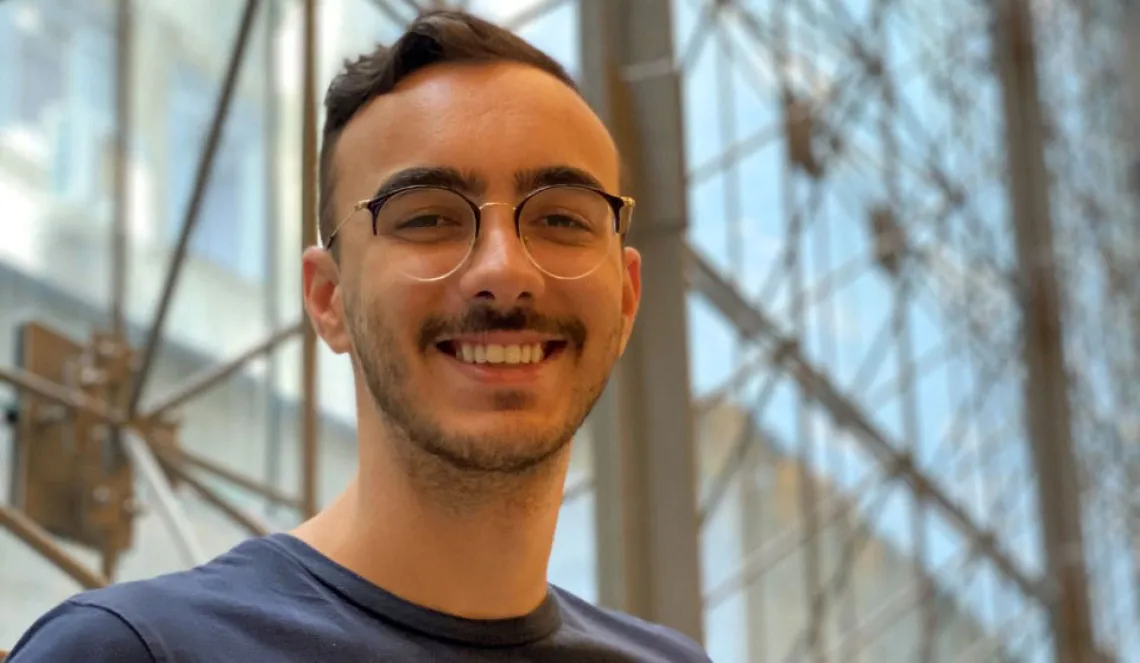
Eight Questions with Bachelor of Architecture Student Rafael Taiar
“What I like best about the B.Arch program is that it is a family. CAPLA is much more than a place to get an architecture degree. It is also a place where you will meet many lifelong friends and share experiences that will be remembered forever.”
Bachelor of Architecture student Rafael Taiar, who is from the small city of Vinhedo in São Paulo, Brazil, came to CAPLA for what he knew would be a challenging and rewarding experience.
What brought you to the University of Arizona to study architecture?
In high school, I always wanted to study abroad, so choosing the United States was an easy choice since my sister was already living in Tampa, Florida. I also wanted to live in a place with warm weather, because I was already accustomed to the hot weather in Brazil. So choosing Arizona was an easy decision in terms of weather, and after I found out that CAPLA had a B.Arch program ranked in the top 25 in the U.S., the decision was already made. As I like to say, I don’t like things easy, so choosing CAPLA was a promise for a very challenging experience from which I could vastly expand my knowledge.
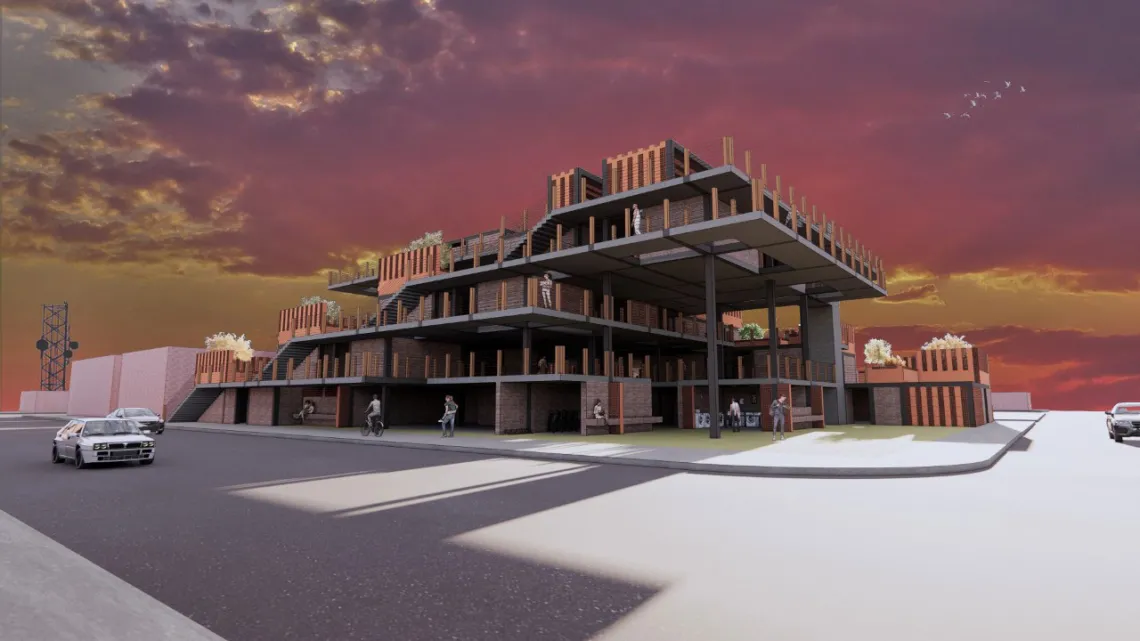
Rendered image of the exterior view of affordable housing-based multi-use apartment complex in El Paso, Texas, by Rafael Taiar.
What area of architecture most interests you?
Before ever studying architecture, I had a deep passion for understanding how our buildings affect people. I wanted to learn how the built environment can impact the way people act. After taking ARC 333 Forms of Critical Inquiry and Expression, I had the opportunity to dive deeper into this topic and fine tune my research on the focus of how architecture can affect our physical and mental health.
In middle school, I was divided between going to college to study architecture or medicine, and I think this research focus can supplement my desire to learn about our health and hopefully guide me to designing in health-supportive ways. Another aspect of our health as a species relies on the health of our ecosystems, so sustainable design for me is not a choice but a non-negotiable duty of every architect and every project.
What do you like best about the B.Arch program and College of Architecture, Planning and Landscape Architecture?
What I like best about the B.Arch program is that it is a family. CAPLA is much more than a place to get an architecture degree. It is also a place where you will meet many lifelong friends and share experiences that will be remembered forever.
CAPLA also has pretty much every tool you could need to advance in your studies and focus on what truly matters for you. Aside from the physical tools such as computer, model and materials labs, there are also many non-physical tools like lectures, clubs and events that help us get involved and expose us to new information every day.
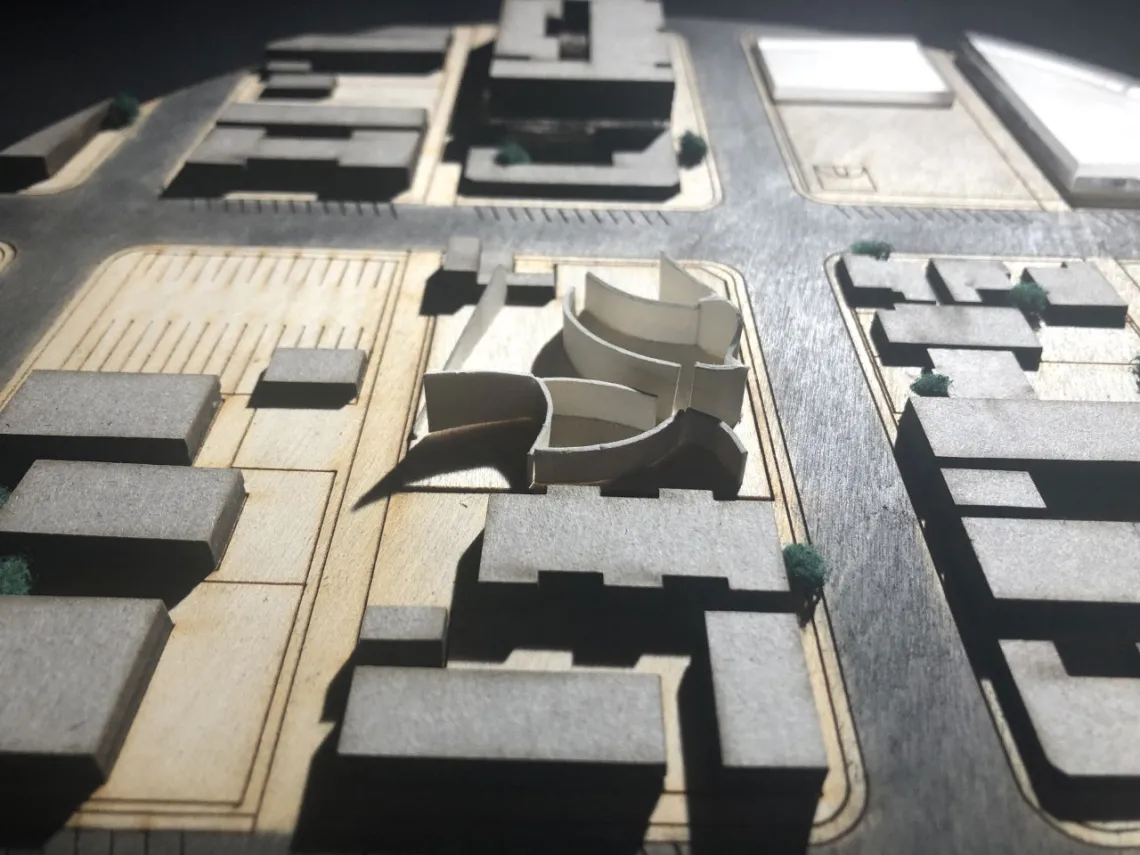
Preliminary study model tackling inside and outside sound acoustics for El Paso affordable housing project, by Rafael Taiar.
What has been your biggest challenge at CAPLA, and how have you overcome that challenge?
I am very excited to take on new challenges, and during my first semesters in CAPLA, I would do everything I could to be the best student in my class, even if that meant setting aside my physical and mental health. As time went by I learned to better organize my schedule and take on healthy habits that still allowed me to pursue this personal challenge while taking care of myself and leaving the stress behind. Decisions such as living closer to CAPLA, working out regularly and planning my meals in advance helped me save money and time and mature from a high schooler to an adult ready for the professional world.
What has been your biggest challenge outside of CAPLA during your college experience?
Outside of CAPLA, my personal challenge was to connect to people and make friends. The language barrier was never an issue for me but as an international student, the differences in culture were hard to overcome, and oftentimes I felt misunderstood or misinterpreted. This challenge became less of a problem as I became closer friends with my colleagues in CAPLA and as I met more Brazilians on campus who introduced me to their friends of the most diverse nationalities and backgrounds.
The distance from my friends and family back home, together with the difference in time zones, was another challenge that was hard to overcome. Fortunately, today there are hundreds of ways to keep in touch with people over the internet, and I try to talk to my friends and family every day in one way or another.
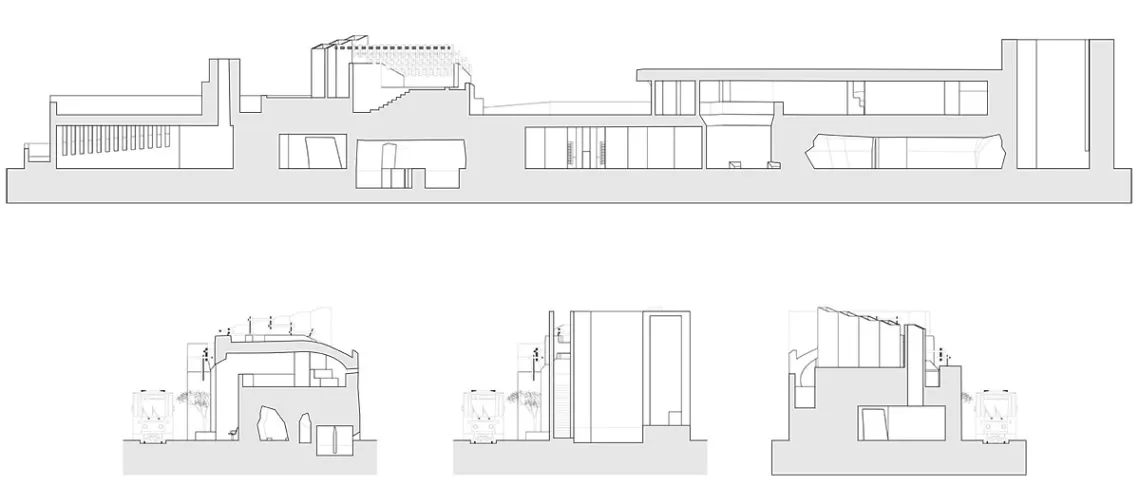
Section drawings from the Tucson bath house derived from morphological studies of a styrofoam block, by Rafael Taiar.
What does the CAPLA experience mean for you?
Being part of CAPLA is indeed being a member of a family. As students, we have our ups and downs, but there is always a common effort to help each other and care for each other. Everyone has a different background and is most likely away from their families, just as I am, and it is good to know that we have each other to rely on. Not only that but we face many common challenges, so overcoming them as a team is definitely easier and helps create more meaningful bonds between us.
The CAPLA experience also means leaving our comfort zones and seeking more knowledge every day. Our diverse group of students and faculty, as well as our broad scope of projects, make sure that no day is the same as the last, and that we always have a new challenge to overcome in creative ways, together.
Tell us about your internship and volunteer experiences, as well as your career aspirations.
I have had the pleasure of getting an internship opportunity to work for a professor I met in CAPLA. Working my hardest in the studio and being willing to take risks with the goal of learning more everyday caught my professor’s attention and granted me a position as an intern designer and researcher for his firm in Bisbee, Arizona.
Aside from this professional experience, I had the pleasure of volunteering for the Arizona Habitat for Humanity alongside with friends I met in CAPLA, and also volunteer at the Z-Mansion in Tucson, preparing and serving food for the homeless population.
These humbling experiences fueled my curiosity even more and led me to take any opportunity I could to learn more about different people and their realities. I also participated in the CAPLA study abroad summer program in South Africa, where I toured the entire country in a month full of inspiring and eye-opening experiences. These diverse experiences have given me a greater desire to travel and learn, so my future plans after graduation are to work in the U.S. for the duration of my visa and hopefully move to a different country after that—preferably one I had never visited before.
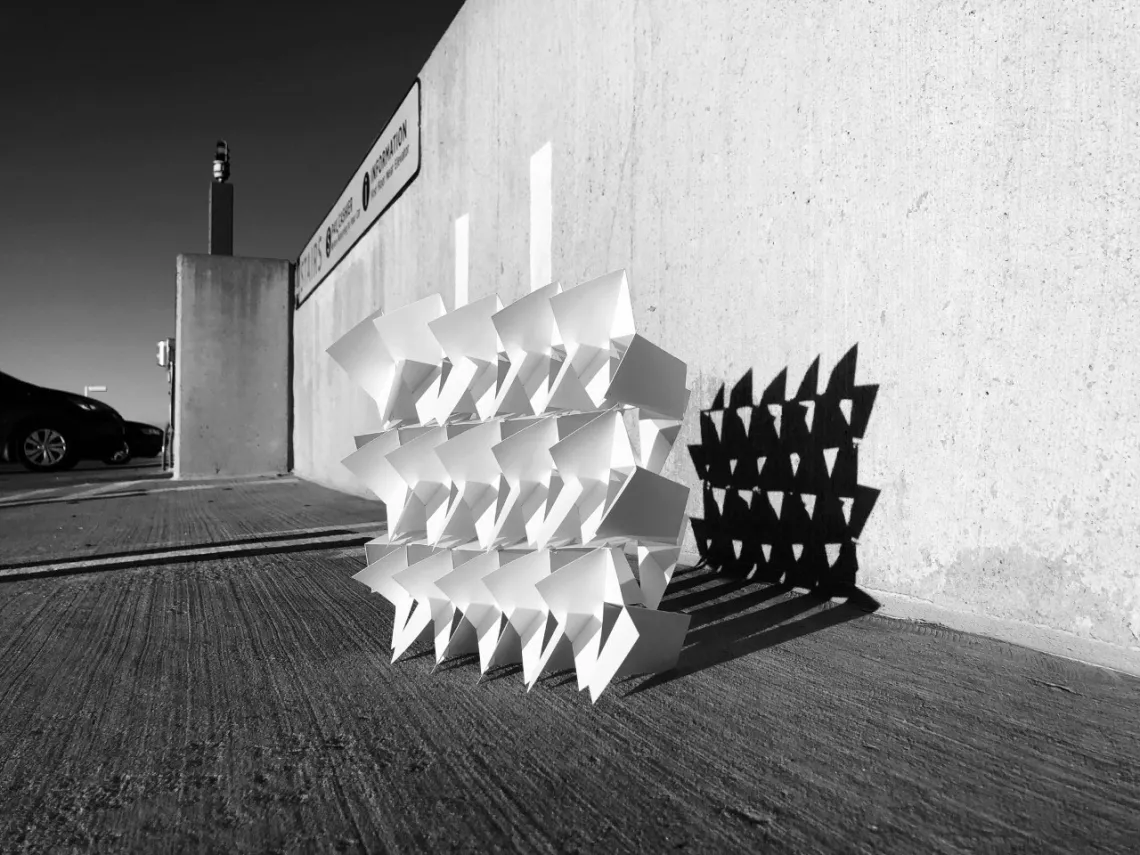
Screen wall enveloped from a single "origami" module, by Rafael Taiar.
What advice do you have for prospective B.Arch students?
Be brave, take risks, ask questions and take care of yourself. CAPLA is a place to learn and make connections so don’t be afraid to reach out to people and ask questions because chances are that if they study in CAPLA they are just as passionate and curious as you are. Also, don’t forget to take care of your physical and mental health because life is already short enough if you are healthy, so do your best to stay healthy and active in order to become better every day.



